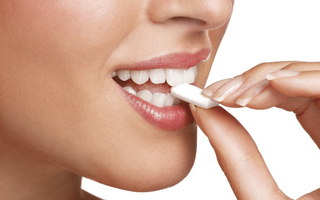
To Chew or Not To Chew
To Chew or Not To Chew
Do you regularly chew gum? Provided it is sugar-free, this habit can be good for your dental health. Chewing sugar-free gum could help protect your teeth in a number of different ways and it may be a good idea after eating or in-between meals when you are unable to brush your teeth.
Acid Erosion
After you have eaten your mouth becomes more acidic. This is due to acid produced by plaque bacteria. Plaque is the sticky film you can feel over your teeth when they haven’t been brushed for a while. You may have also consumed some foods that are acidic and which will have a similar effect and these include citrus fruit, fizzy drinks or fruit juice. The acid weakens tooth enamel, gradually dissolving it and increasing your susceptibility to tooth decay. This action, called acid erosion will eventually cause a cavity.
Using Sugar-Free Gum to Protect Against Acid Erosion
It takes between half an hour to an hour for pH levels in the mouth to return to normal after eating, but chewing sugar-free gum for up to 20 minutes helps to speed up this process. This is because chewing stimulates the production of saliva, reducing the effects of an acid attack and reducing the time taken for pH levels to normalise. Saliva also contains some minerals which are deposited back into the tooth enamel, helping it to re-harden more quickly.
If you can, choose gum containing xylitol, a natural sweetener which is thought to help prevent bacteria from sticking to the teeth, reducing your risk of decay.

